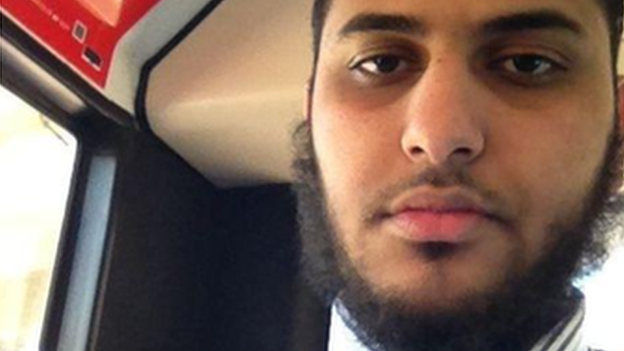Kristen Brekke: From proud Welsh boy to terror helper
- Published
Mobile phone footage - featuring Brekke and Muthana playing with a BB gun on a hill above Cardiff Bay Retail Park - helped prove Brekke knew exactly what his friend had been planning
On top of a hill under a dark sky, the lights of a city behind them, two teenage boys wave a gun at a camera and shout "Allah u Akbar - God Is Great".
But all is not as it appears in the mobile phone footage taken by Kristen Brekke and his friend Aseel Muthana.
These are not Islamic extremists fighting in the Middle East - they are just wannabes.
In the shaky shots on "Asda Hill", as the pair call it, they use a ball bearing gun to shoot at tin cans and fantasise that below them it is Syria, not the Cardiff Bay Retail Park.
And that the Asda supermarket in the distance is really a military checkpoint in Raqqa.
At one point they do not know any Islamic chants, so hum the music from the film Rocky.
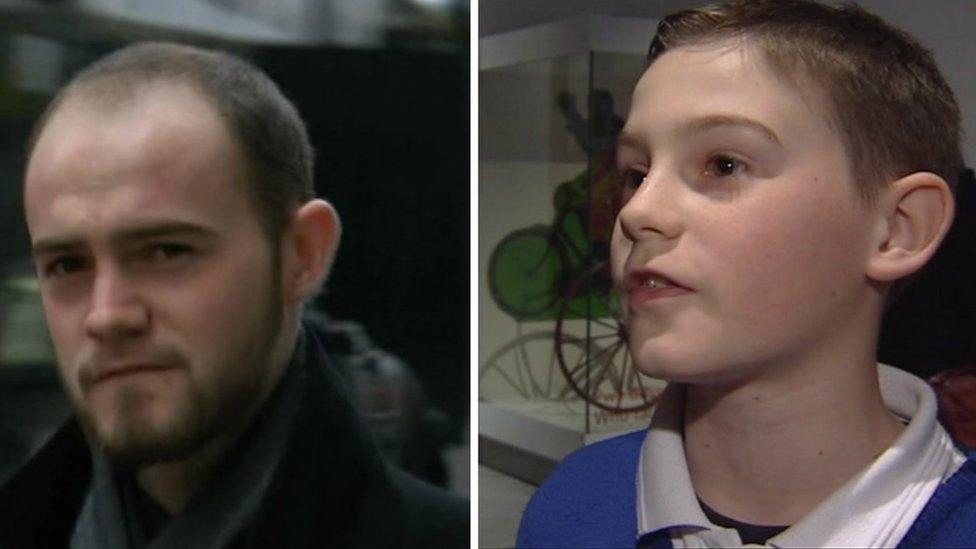
Kristen Brekke as an adult arriving at court and as a child
But two months later, the role-play fantasy became a reality for Aseel Muthana, who was 17 at the time.
On 21 February 2014, he left Cardiff for Syria to become a jihadi and join his brother, Nasser, an infamous Welsh recruit to the so-called Islamic State. Now aged 19, he has not returned.
Both brothers have now been added to a UN sanctions list.
Aseel Muthana's friend, Brekke, now 20, was accused of helping him and has now been jailed after being found guilty, alongside two others, of helping in the preparation of an act of terrorism following a trial at the Old Bailey.
Police said the video they seized helped prove Brekke knew exactly what his friend had been planning.
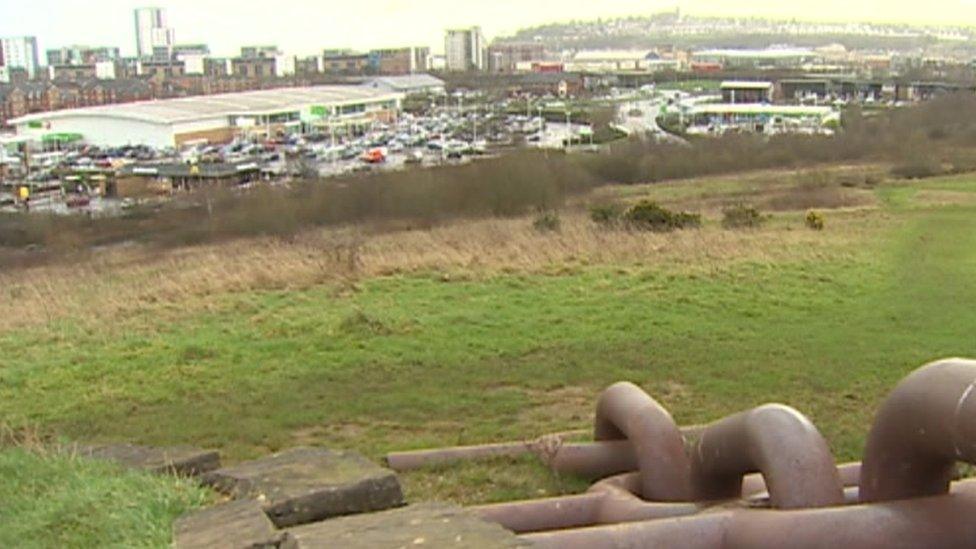
The hill overlooking Asda on the Cardiff Bay Retail Park, which Kristen Brekke and Aseel Muthana pretended was Syria
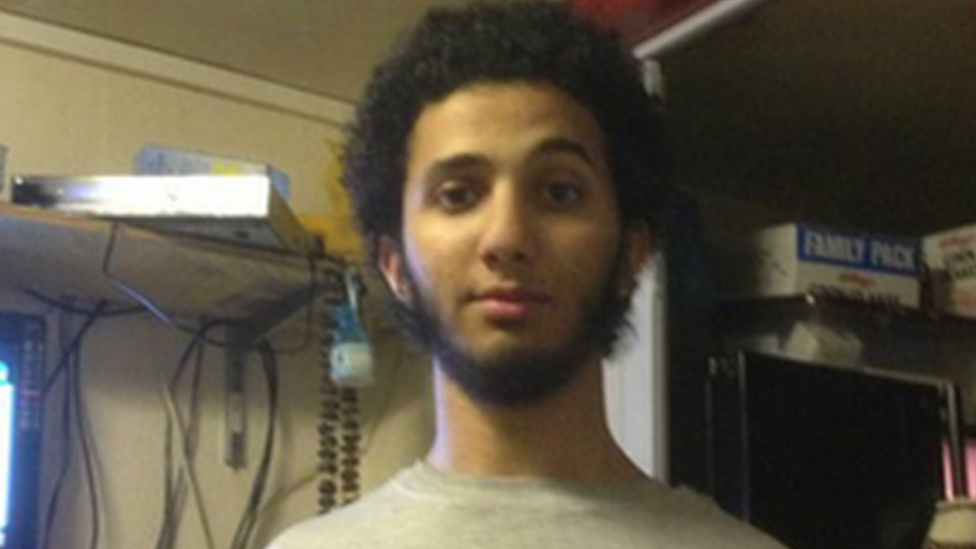
Aseel Muthana travelled to Syria in 2014 to join his brother who was fighting for the so-called IS
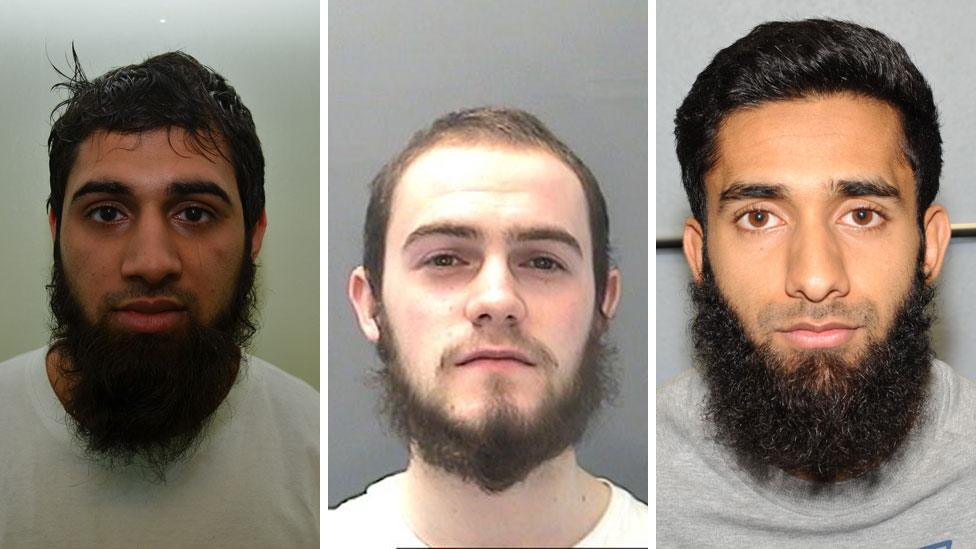
From left: Adeel Ulhaq, Kristen Brekke and Forhad Rahman
But how and why did Brekke - whose family are not Muslims and who had hoped to become a radiologist - become linked to terrorism?
At the age of 10, he was a proud and patriotic Welsh schoolboy.
Footage of him on a school trip shows a happy, contented young boy, who said: "I feel proud to be Welsh because I like the red dragon and when I ever sing the anthem it, like, makes me very proud and want to sing it."
He was brought up in the Grangetown area of Cardiff, an area with a large Muslim population and he decided to convert to Islam within a couple of years of starting at Fitzalan High School.
He said most of his friends were Muslim and he wanted to fit in.
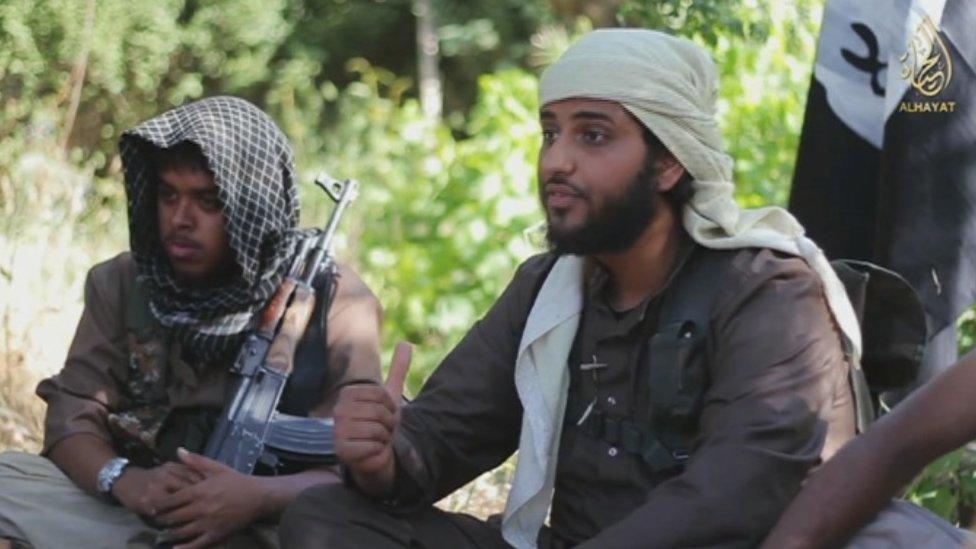
Nasser Muthana appeared in an ISIS propaganda video
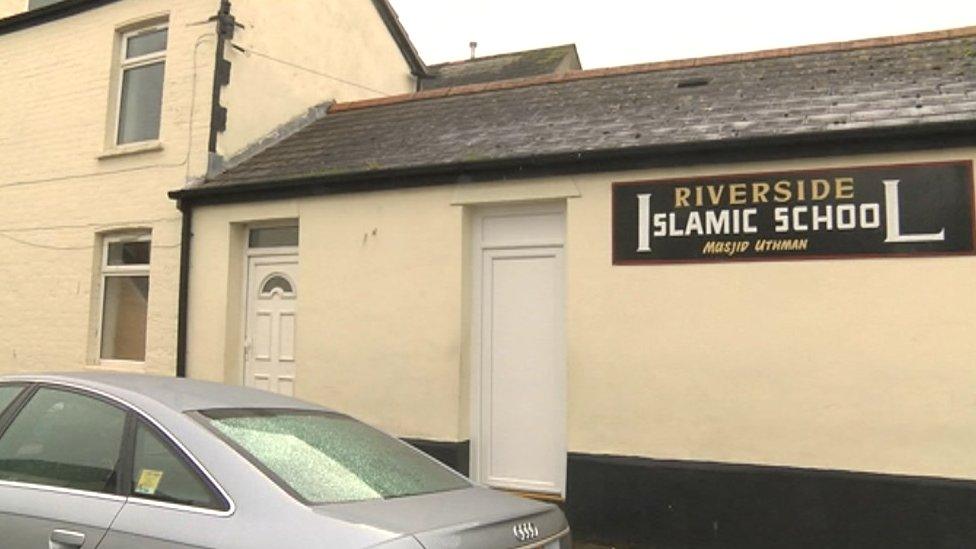
Brekke, whose father is of Norwegian origin, changed his name to Kaleem and took his Declaration of Faith at a small mosque in Riverside, just a few streets away from his home, which is renowned for its anti-extremist stance.
The Imam there, Mufti Tariq, said he had never seen any signs of extremism in the teenage Brekke, adding: "All his motivation was for learning."
Brekke met Aseel Muthana in 2012 when they worked together at a cafe in Grangetown - during his trial, Brekke described him as friendly, easy going and always joking.
Aseel had been unable to get to Syria where his brother Nasser was fighting for IS as his parents had confiscated his passport.
The Old Bailey heard Brekke helped him get a new one. He also bought and stored Army gear and boots for him, as well as conducting searches on his computer about Syria.
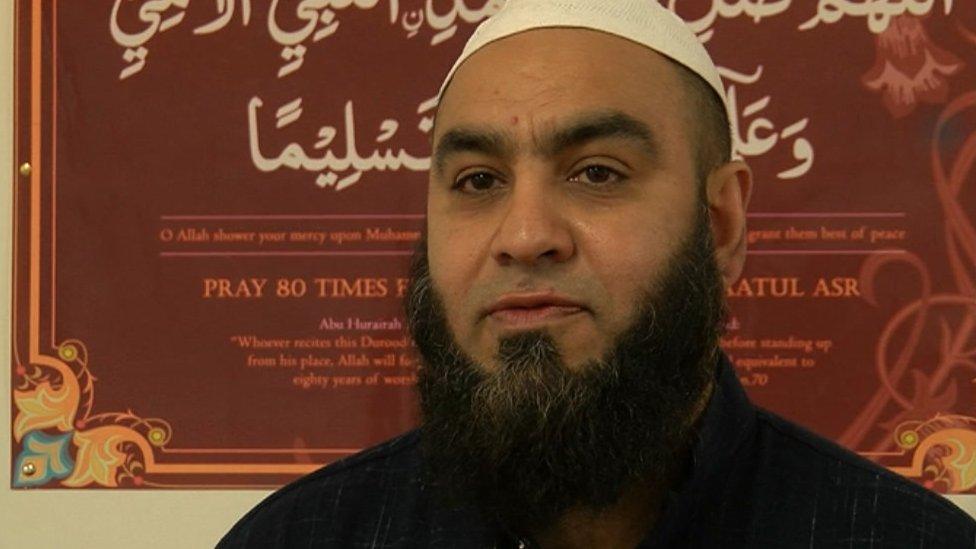
Mufti Tariq said Brekke never showed signs of extremism when being taught at his mosque
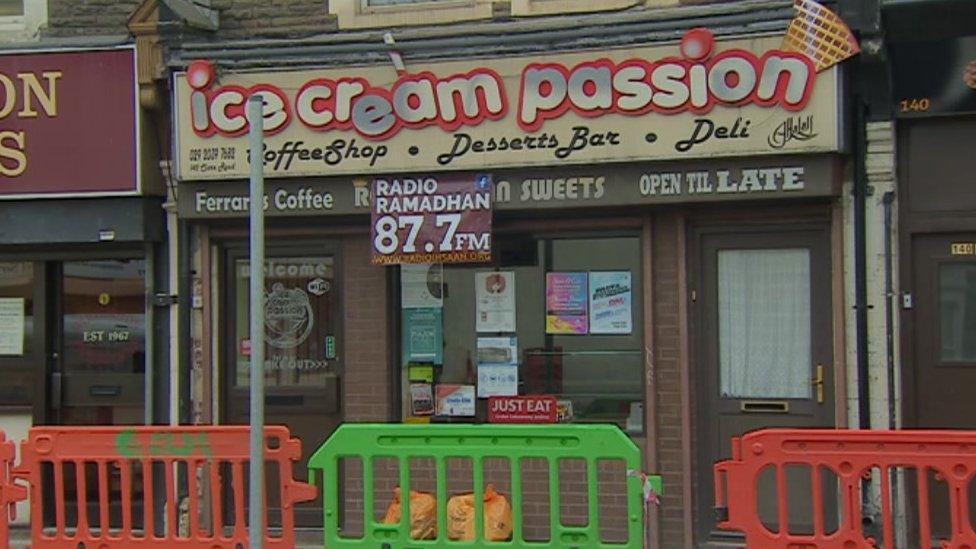
Brekke and Aseel Muthana became friends after working together at a cafe in Grangetown
The BB gun shown in their "Asda Hill" video was also found in Brekke's house.
His co-accused Forhad Rahman, from Cirencester, and Adeel Ulhaq, from Nottinghamshire, did not know Aseel Muthana or Brekke personally - their contact was online.
Nevertheless they were able to provide Muthana with money and expertise to fund his jihadi journey.
Leila Nouri-Bennett, from Swansea University, who is an expert in online radicalisation, said the internet was helping to tap into the vulnerabilities of young people.
"Essentially, terrorist organisations haven't changed in terms of the way they communicate, in the way in which they spread propaganda," she said.
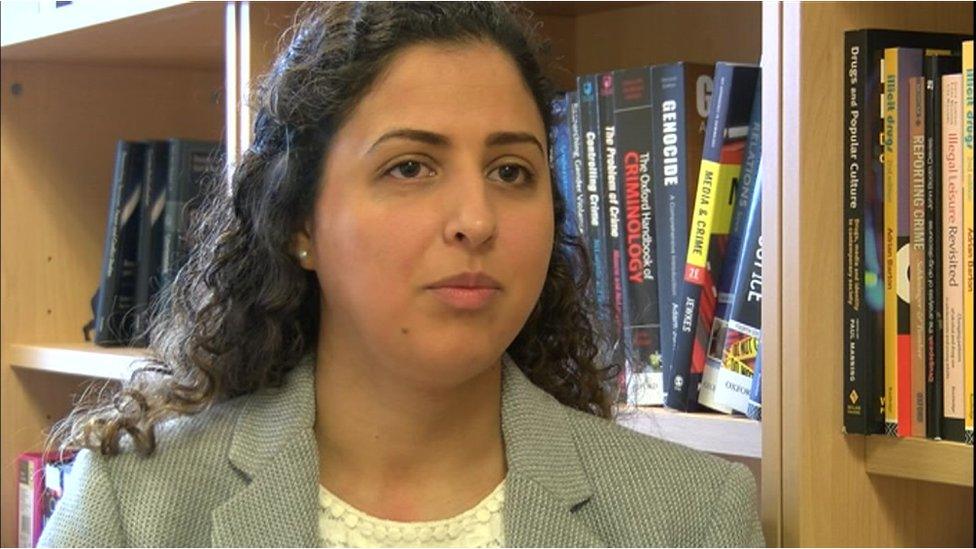
"What makes it feel different is that the internet has enabled them to recruit to a global pool.
"One thing that's very clear is how ISIS videos, for example, on YouTube, are using the trigger factor of a sense of belonging.
"So I noticed one of the videos, in this case one of the guys in the video said 'you know, you may feel depressed. If you come to us this is all going to change'.
"So they're pulling on these factors: 'OK, you may not feel like you're involved in your community, you may feel a sense of disconnection', and they're using that.
"I think there's a big part to play in terms of this idea of cohesion and community."
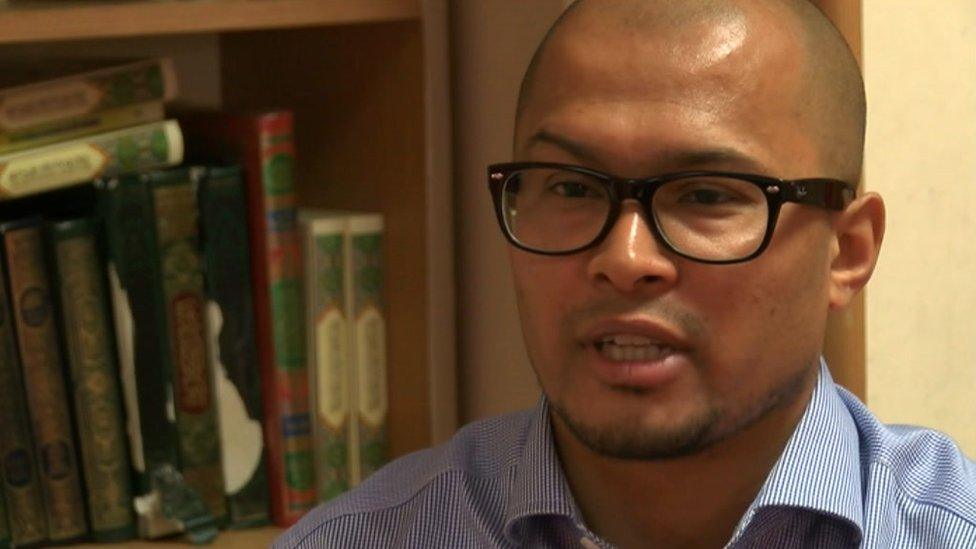
Mohammed Alhamgir, of the Muslim Council of Wales, said it was important to stress that the vast majority of Muslim people were opposed to extremism.
"We need to get equilibrium in the media," he said.
"So for every time there's on event that is negative or terror-related, I could tell you of five or 10 events that are in the community where Muslims are making a positive impact and affecting the local community."
- Published10 February 2016
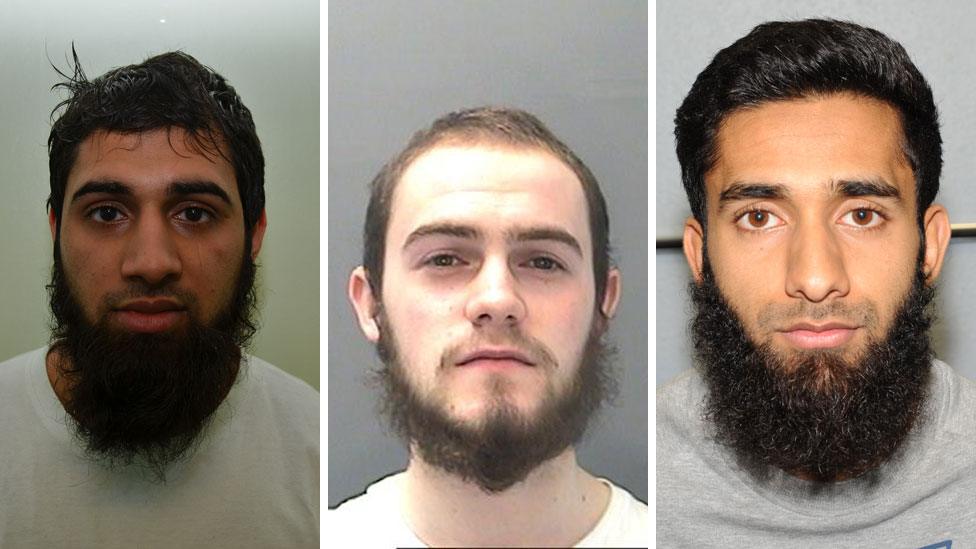
- Published25 January 2016
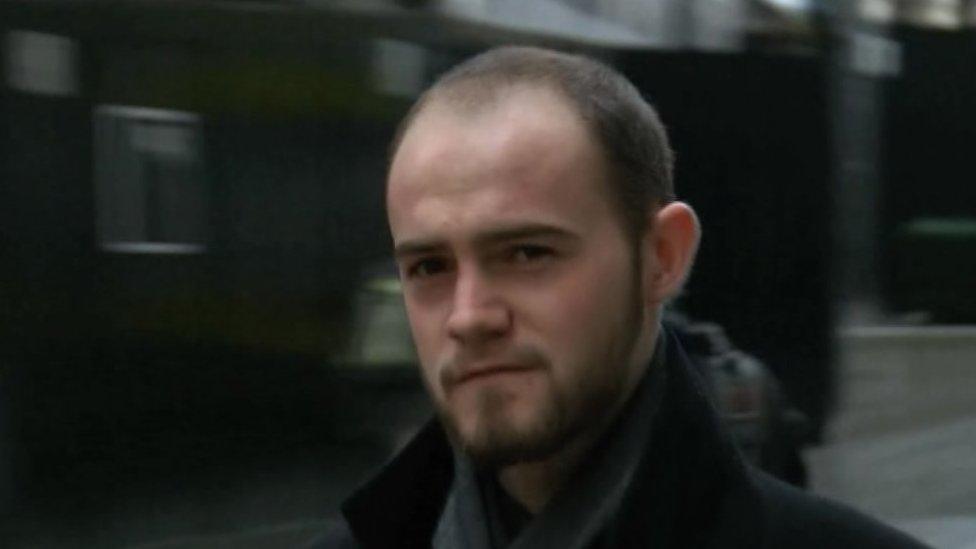
- Published21 January 2016

- Published13 January 2016
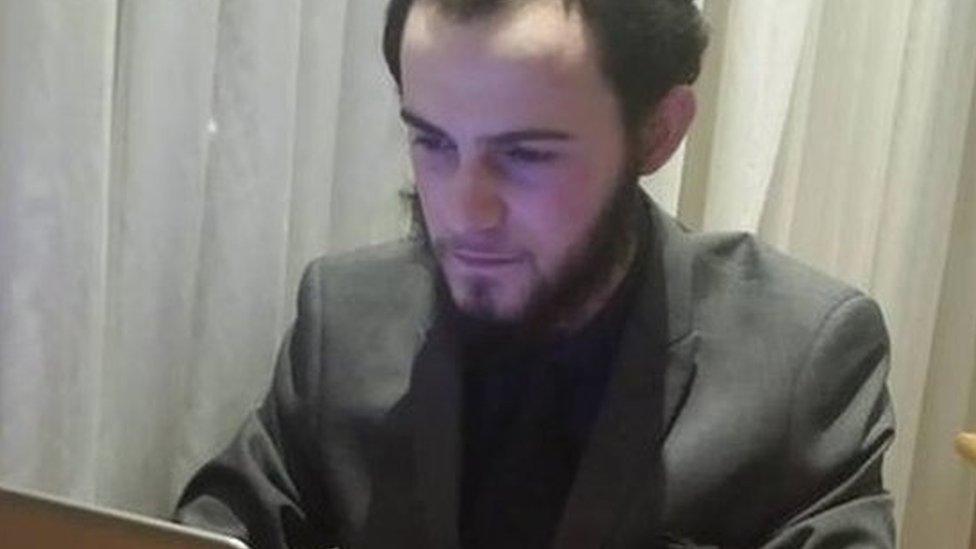
- Published12 October 2017
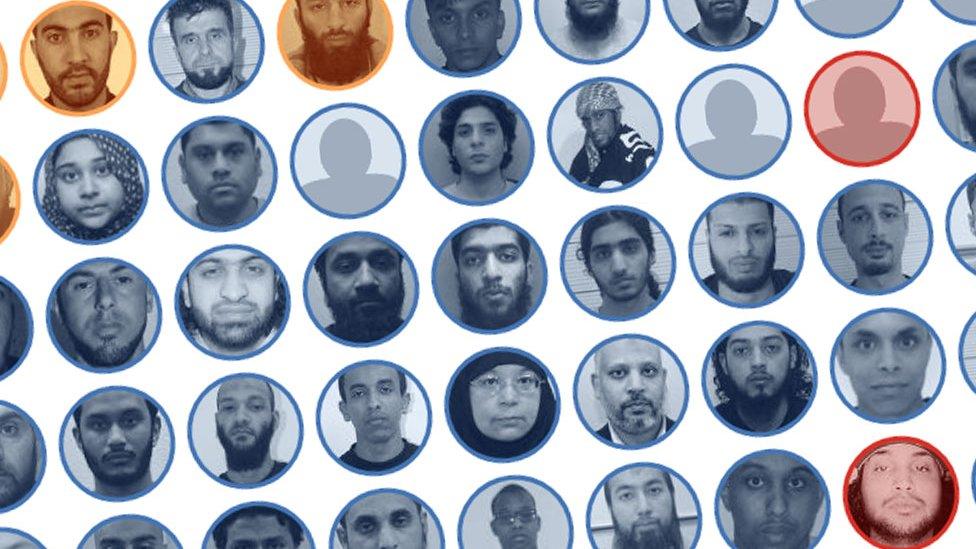
- Published30 September 2015
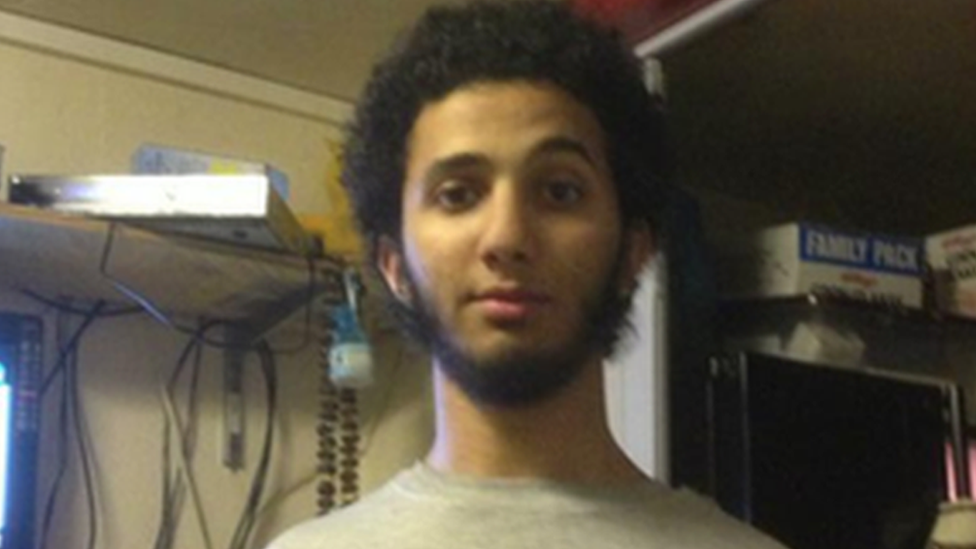
- Published17 November 2014
